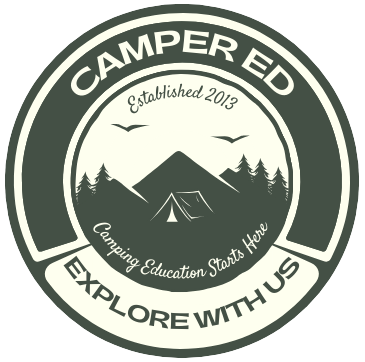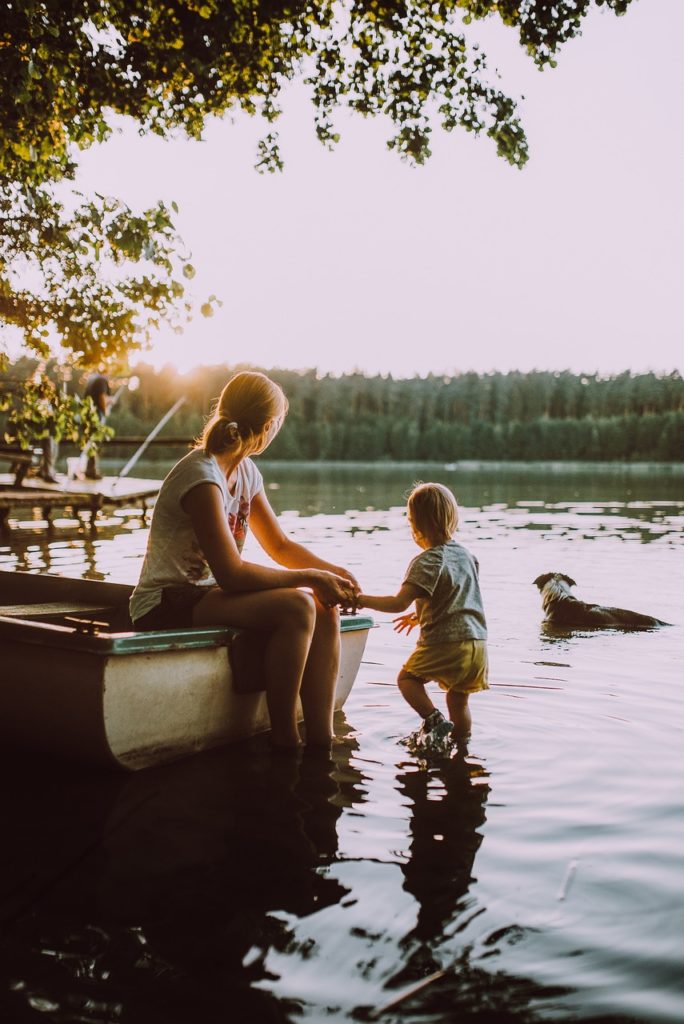Embark on a journey of discovery and enrichment by learning how to craft an educational camping experience that goes beyond the traditional outdoor excursion. Planning a camping trip that offers hidden learning opportunities can ignite a passion for exploration and education in children. In this guide, we will explore into creative ways to integrate learning into your camping adventure, sparking curiosity and fostering a love for the great outdoors. From nature studies to astronomy lessons under the stars, uncover the secrets to making your next camping trip an educational and unforgettable experience for kids.
Planning Your Educational Camping Trip
Before begining on an educational camping trip with kids, careful planning is vital to ensure a successful and enriching experience. From choosing the right location to packing the necessary gear, each aspect plays a crucial role in creating a memorable learning adventure in the great outdoors.
Factors to Consider When Choosing a Location
When identifying a location for your educational camping trip, it is important to consider proximity, accessibility, and the natural surroundings. Choose a site that is not too far from your home to minimize travel time and allow for more time spent exploring and learning. Additionally, ensure that the location is safe and suitable for children, with amenities like clean water sources and restroom facilities.
- Proximity to home
- Accessibility and safety
- Natural surroundings and educational opportunities
Knowing the local flora and fauna, as well as any historical significance of the area, can enrich the learning experience for kids and make the trip more engaging. Consider the season and weather conditions when planning your camping trip to ensure a comfortable and enjoyable outdoor experience.
Essential Gear and Preparations for an Educational Trip
For an educational camping trip, it is vital to pack the right gear and make necessary preparations to ensure a smooth and enriching experience for the kids. Basic camping equipment such as tents, sleeping bags, cooking utensils, and first-aid supplies are crucial for a successful trip. In addition, consider packing educational resources such as field guides, maps, and binoculars to enhance the learning opportunities during the trip.
Educational activities such as nature hikes, wildlife observation, stargazing, and storytelling around the campfire can further enrich the camping experience and provide valuable learning opportunities for children. Encourage kids to actively participate in setting up camp, preparing meals, and engaging in educational activities to foster a sense of responsibility and independence during the trip.
Educational Activities and Learning Opportunities
Now, let’s explore the various educational activities and learning opportunities you can incorporate into an educational camping trip for kids. From science and nature lessons to historical and cultural learning, there are endless possibilities to make the outdoors a classroom for young minds.
How to Incorporate Science and Nature Lessons
To start, plan nature walks where you can point out different plant species, explain the ecosystem, and discuss the importance of conservation. Involve the kids in hands-on science experiments, such as identifying rocks or collecting water samples to analyze. Encourage them to ask questions and make observations, fostering their curiosity about the natural world around them.
Another way to incorporate science and nature lessons is by stargazing at night. Teach the kids about constellations, planets, and the vastness of the universe. You can also organize a scavenger hunt to spot wildlife and track animal footprints, connecting them to the biodiversity of the area.
Tips for Engaging Kids in Historical and Cultural Learning
To engage kids in historical and cultural learning, consider visiting nearby historical sites, monuments, or museums. Provide them with background information before the visit, and encourage them to ask questions and interact with the exhibits. You can also organize themed activities, such as reenactments or storytelling sessions, to bring history to life for the kids.
- Encourage kids to keep a journal during the trip to record their thoughts and reflections about the historical and cultural experiences.
An important aspect of historical and cultural learning is to have open discussions with the kids about the significance of preserving heritage and traditions. By fostering a sense of respect and appreciation for different cultures, you can instill valuable lessons that will stay with them beyond the camping trip.
- After the trip, follow up with the kids by asking them to share what they learned and how they can apply it to their daily lives.
Engaging kids in historical and cultural learning not only broadens their knowledge but also helps them develop empathy and a deeper understanding of the world around them. By creating a well-rounded educational camping trip, you can inspire a love for learning that extends far beyond the classroom.
Nurturing Social Skills and Personal Growth
Once again, planning an educational camping trip for kids provides an excellent opportunity to nurture their social skills and promote personal growth. Camping offers a unique environment where kids can learn to interact with others, communicate effectively, and develop teamwork skills. One way to achieve this is by incorporating team-building exercises and group activities into the camping itinerary.
Team-Building Exercises and Group Activities
Personal growth and social development go hand in hand when engaging in team-building exercises and group activities during a camping trip. These activities help children learn to work together towards a common goal, foster leadership skills, and improve communication within the group. Encouraging kids to participate in tasks such as setting up a campsite together, planning a group hike, or organizing a scavenger hunt can promote collaboration and create lasting bonds among the campers.
An effective way to incorporate team-building exercises is by organizing structured group activities that require cooperation and problem-solving. Activities like building a shelter using natural materials, navigating an orienteering course, or cooking a meal together over a campfire can encourage teamwork and boost confidence in kids. These experiences not only enhance their social skills but also help them develop a sense of accountability and respect for others.
Encouraging Independence and Responsibility
Personal growth is further nurtured when children are encouraged to take on tasks independently and assume responsibility during a camping trip. Giving kids opportunities to make decisions, set goals, and manage their time can empower them to become more self-reliant and confident individuals. Through activities like setting up a tent, preparing their meals, or following a trail map, kids learn valuable life skills that promote independence and a sense of accomplishment.
Safety and Logistics
How to Teach Kids Camping Safety Tips
For an educational camping trip with kids, teaching safety tips is paramount. Start by explaining the importance of staying together and never wandering off alone. Encourage kids to pack a small safety kit with crucials like a flashlight, whistle, and basic first aid supplies. Teach them how to identify different plants and wildlife to avoid potential dangers.
Practice setting up a tent together and review fire safety rules, emphasizing the importance of never leaving a fire unattended. Show them how to properly extinguish a fire and remind them to stay clear of flames. Lastly, discuss the buddy system and designate meeting points in case anyone gets separated.
- Explain the importance of staying on marked trails and following park rules.
- Encourage kids to wear appropriate clothing and footwear for outdoor activities.
- Teach them how to recognize and respond to weather changes and signs of wildlife.
This ensures that kids are well-prepared for outdoor adventures and stay safe throughout the camping trip.
Meal Planning and Nutrition Education on the Trail
To incorporate meal planning and nutrition education into the camping trip, involve kids in preparing simple and nutritious meals. Encourage them to pack non-perishable snacks like nuts, dried fruits, and granola bars for energy on the go. Teach them about the benefits of hydration and the importance of drinking plenty of water during outdoor activities.
With a focus on nutrition, discuss the food groups and the role of carbohydrates, proteins, and fats in a balanced diet. Show kids how to read food labels and make healthy choices when selecting trail snacks. Use meal times as opportunities to talk about portion sizes and the importance of fueling their bodies with nutrient-rich foods.
Nutrition plays a crucial role in maintaining energy levels and supporting physical activities during the camping trip. By incorporating education about meal planning and nutrition, kids can develop healthy eating habits that extend beyond the outdoor experience.
Conclusion
Ultimately, organizing an educational camping trip for kids can be a rewarding experience that uncovers hidden learning opportunities. By incorporating hands-on activities, nature exploration, and skill-building exercises, children can develop new skills, gain knowledge about the environment, and foster a deeper appreciation for the outdoors. Through structured lessons and guided experiences, educators and parents can create a unique learning environment that encourages curiosity, exploration, and growth. By embracing the educational potential of camping trips, children can have fun while expanding their horizons and creating lasting memories.

